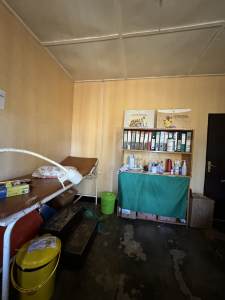With the International Organization for Women and Development, I will aid in cervical cancer screening and pre-cancerous treatment using thermoablation in Rwanda. Together, we will work to screen and treat the women of Rwanda and help train Rwandan providers at Kibagabaga Hospital. Early treatment is often more effective and incredibly less invasive. The emphasis on training Rwandan providers is a crucial aspect of ensuring the program's success and sustainability. This project will save the lives of those impacted by cervical cancer at the highest rates across the world. Focusing on screening all women and utilizing thermoablation for early pre-cancerous lesions, is a comprehensive and impactful strategy. It promotes early detection, minimally invasive treatment, and community-wide engagement, contributing to improved community health and a decrease in the alarming incidence of cervical cancer.
The people of Rwanda and Rwandan Providers will benefit from this project. Sub-Saharan Africa has low cervical cancer screening rates thus one of the highest rates of cervical cancer world-wide. Per Tafadzwa Dzinmarira(1) and colleagues, cervical cancer is the most common cause of death for women in the region. With this project, we will help increase access to proper screening and educate the future of medicine to help protect the people of Rwanda from cervical cancer.
With early detection comes timely intervention and treatment, helping to prevent and reduce the risk of developing cervical cancer. There is benefit from this project impacting individual patients, however, it goes much further. With healthier individuals there is a healthier community which leads to community wide empowerment. The multifaceted impact extends to preventive healthcare, improved health outcomes, and collaborative efforts toward reducing the burden of cervical cancer.
1. Dzinamarira T, Moyo E, Dzobo M, Mbunge E, Murewanhema G. Cervical cancer in sub-Saharan Africa: an urgent call for improving accessibility and use of preventive services. International Journal of Gynecologic Cancer. 2023;33(4). doi:https://doi.org/10.1136/ijgc-2022-003957
The impact of this trip is life saving for the patients we will be treating and screening. This impact will not only save lives during our time in Rwanda but will save the lives of people going forward as medical professionals will be trained and will feel confident screening and treating cervical abnormalities. As more individuals participate in screening programs, the overall health of the community improves. The early detection and treatment of cervical abnormalities will help reduce the prevalence of cervical cancer in the Rwandan community and the sub-Saharan region. This will keep all people- mothers, daughters, sisters safe from the dangerous threat that is cervical cancer.
After my return, my experience in Rwanda will be invaluable to my own practice as an advanced practice clinician. Participating in this program would allow for refinement of my clinical and diagnostic skills and provide further insight and experience in managing a diverse range of cases in resource-limited settings. This will continue to enrich my exposure to diverse cultural backgrounds and individual and unique heathcare challenges. This program will provide large opportunities for growth that will not only impact myself personally but impact all patients I care for going forward in a positive, culturally competent, and empathetic way.












Throughout my trip, we worked with health care professionals (nurses and medical students) and helped train and teach the health care professionals how to screen for cervical cancer and how to treat pre cancerous lesions by thermoablation.
The women that we screened were directly impacted. We informed them of proper screening regimens and what we are screening for. We also treated appropriatley for those who fit the criteria for treatment by thermoablation.